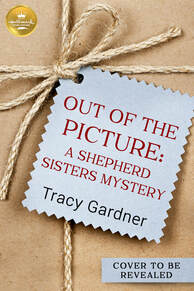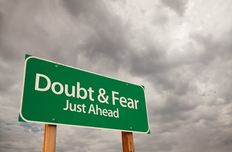 This July has become the month between. The month between two book publishing dates, the month between the start of a new series and the end of another, and the month between turning in my last contracted manuscript and possibly starting something new. In the spring of 2018, I told my literary agent I was done. I’ve always written, from stories about cats and bunnies in elementary school to angsty poems and song lyrics in my teen years to a manuscript that became my therapy in my forties. Writing keeps me mentally and emotionally healthy. But in 2018, the merry-go-round of writing, querying, writing, submitting, revising, resubmitting, writing, submitting, waiting, hoping, hoping, hoping… it all piled up and killed my love of writing. My agent Fran says she remembers sitting outside her apartment on the phone with me when I told her. I think I knew she wouldn’t believe me, so I came armed and prepared and thanked her for all of her amazing-ness, because Fran is that—an amazing agent—and then added that I wanted her to take me off her website. “If I ever write again, I promise I’ll reach out. I’d never work with anyone else. But I’m done,” I said. Then she believed me. A few months went by. Fran called. She understood I couldn’t write anymore, but she had an idea. Hallmark had just started a publishing arm. Why not come up with a proposal and send it in? I had nothing to lose. I knew it wouldn’t go anywhere, and it wasn’t like actually writing a story. Just five pages. Then I’d go back to my new, non-writing life, which was so busy at that time that I didn’t much miss putting words on a page yet. I wrote the proposal and waited. Hallmark liked bits and pieces of it, but not most of it, so I tried again and waited. I took my daughter to NYC for her high school graduation gift, and we had the best time. In three days we saw two plays, got tattoos, ran around Manhattan, and spent very little time sleeping. I thought about my five-page package of likely futile effort in Hallmark’s hands but tried not to. We didn’t arrange to stop and say hello to Fran. She was busy, and I was still very certain I’d put my hopeful writing dream away in a locked and dead-bolted little room in my head. A week after we came home, Fran informed me that Hallmark liked my proposal. Stacey Donovan, Hallmark’s editorial director, planned to call me. Daunting, but I was sure it wouldn't lead to anything. Stacey called, and I was stunned to find how easily we chatted about my potential fictional town and characters and story. I agreed to rework the proposal again. My ingrained hope broke through and tried to rear it’s unwanted head, and I shoved it back into its room, bolted the door, and added a padlock. After Stacey changed my life by telling me that Hallmark wanted the story, I learned that imposter syndrome isn’t just a funny-sounding thing writers joke about. Because, why me? Why would Hallmark want to publish my story, after I’d tried and failed at the writing thing for too many years? I second guessed every scene, every bit of dialogue, every single word I wrote. When I turned in the manuscript, I held my breath. I was positive—I mean, positive—an email would come any day telling me that it wasn’t good. They’d made a mistake, I wasn't capable, and it wouldn’t be published. And I’d go back to my non-writing life and try to figure out how to be mentally and emotionally healthy without needing to write. That didn’t happen. I wrote and released the second book for Hallmark, and that was a little easier. Fran and I crafted a proposal to send to Crooked Lane Books for a new story with series potential. Again, imposter syndrome appeared. So when Faith Black Ross was interested, I had another is this real life moment. Now, I’m a month past the release of my third published book and a month away from my fourth. I’m awed by authors who strive to keep going, whatever their reasons. I feel that I’m still at the beginning of my journey; I hope I am. Like most writers, I celebrate triumph built upon the rubble of defeat. Like most writers, I have a few “in the drawer,” manuscripts that for one reason or another didn’t make it into the world. I’m not sure yet of their fate—they may be cherry-picked for future stories, be reworked, or die in the drawer. And like most writers, I have one “out on sub,” a manuscript on submission, a neatly presented package with my heart, my guts, love and anger and hope and fear in 90,000 words. Because this is what most writers write, no matter what the words look like on the page. Which is almost enough to make me stuff my cynical, hopeful optimism back into that dead-bolted, padlocked little room and walk away. But this time, I’ll try not to. I’m working on being braver. Even when it’s hard—especially when it’s hard. I’m getting better at living in the moment. Accepting that I should be here. I’m really good at appreciating what I have. As much as I love words, I don’t have the right ones to fully express how grateful I am to be in this place, in the month between two book releases. I am grateful. I don’t know how many more there will be or what’s ahead. But this is one hell of a journey. xo
0 Comments
 This is some mind-bendy, Matrix level stuff. Out of the Picture was released last week. Today, it was spotted in the wild at a Hallmark store, flanked beautifully by other recently released Hallmark books. I'm still trying to wrap my brain around this. For years -- since I was a kid, really, but in earnest the last couple decades -- I've dreamed of having a book I wrote on shelves in stores. Sometime in the last handful of years, the dream went from being a silly idea, to an all-consuming endeavor, to a crushing failure, to a filed-away, unfulfilled wish in the index of my life. For so long, I refused to let myself consider any possibility other than the dream happening. But we all have a breaking point. When I hit mine, I did my absolute best to put the dream away. I stowed it in a sturdy, tightly sealed box, and refocused my energy on other things. I did okay. I kept the box in the furthest corner of my mind, but I could not forget what was in it. But I left it sealed, for my own mental health. When my agent (see multiple other blog posts regarding Superhero Agent) pushed me to pitch Hallmark with this little idea of three mystery solving sisters in a lakeside town, I did it without expectations. I still have the voicemail saved in my phone from when Fran called to tell me she had news from Hallmark. When I signed the book contract, I remember thinking, 'Wow, this is pretty damn cool.' When I finished content edits (which I thoroughly enjoyed; Hallmark editor Stacey Donovan and Out of the Picture editor Rhonda Merwarth are brilliant, amazing women who seriously know their stuff), then line edits, I still had reservations: What if it wasn't good? What if Hallmark changed their mind? What if advance readers hated it? Reviews came in, and they were overwhelmingly good. Now, the book is on a shelf in a store. Many, many stores, if you can believe that. I'm still having trouble with that one. Imposter syndrome is real, guys. I'm going to Barnes & Noble tonight to see for myself. I think this is real life, but it's crazy. Like, absolutely crazy, and so far beyond what I ever let myself believe could happen. If anyone sees me, please don't pinch me. If this isn't real life, I don't care, I'm staying.  I have news! My book, Out of the Picture: A Shepherd Sisters Mystery, is being published by Hallmark Publishing. The release date is September 3rd. The cover reveal is today! I am beyond excited that this is happening. Savanna Shepherd, her sisters, and their idyllic Lake Michigan hometown are so close to my heart; I love their story, and I hope you will too! And a brief note about this blog post title, "I'm back!" I didn't go anywhere. But I think it's fitting that my last blog post was titled, "Write Scared," nearly two years ago. This is one of those 20/20 hindsight moments: a year and a half ago, in my writer-life, I was feeling discouraged, frustrated, tired, bitter ... I was feeling all the negative things. And I decided that I am a writer. I have to write. When I don't, all the scary things that that previous blog post mentions happen. So I made peace with the idea that, although I am a writer, I might be the only person who ever reads my words. I told my husband and my agent I quit. I told my agent to take me off her site. I was defeated. But my agent told me no; she wouldn't take me off her site, and I was not done. My husband told me I was full of crap (he said it a little differently). But something changed. I got off the merry go round. I kept writing, but it stopped mattering (as much) that I was writing just for myself. During the last two years, I found the courage to leave a job I'd invested 7 years in, and started a new adventure with a different company. I soaked up every second of my kids' last few years in high school. I watched my son grow from a cute little boy to an amazing young man. I took my rockstar daughter on college tours and a spring break trip and then a mom-daughter trip to NYC to see Be More Chill and get tattoos together. I made myself present when my husband felt like talking about his garden or his motorcycle. I used days off to RELAX. Sometimes I wrote, but sometimes I had lunch with friends or saw a movie with my sister. When my agent (she's actually a magical superhero in disguise, but don't tell anyone) asked me -- pushed me -- to consider submitting something to Hallmark, I never imagined it would turn out like this. I'd say I owe her my firstborn, but I'm kind of attached to that one. And the other one. But I owe her ALL the love and chocolate. And now, with my debut cozy mystery being released soon by Hallmark Publishing (listen guys -- HALLMARK PUBLISHING), I am sort of still waiting to see if I'll wake up soon, and this has all been a dream. I also realize my friend who keeps telling me that things happen when they are supposed to happen has been right all along. About this, anyway. Not saying she's right all the time ;) Check back this evening for the gorgeous cover reveal! Thank you for reading. xo  Write scared. Write as if nobody will ever read your words. Write as if someone will. Write as if they all will. Write the kind of story you want to read, one of those precious books you can’t put down because to stop would mean abandoning characters who feel like family; love or hate them, you can’t leave them. There is no safe way to write a page-turner, a keep-you-up-till-4am-story. Books that play it safe feel safe as we read. The stakes aren't that high, the risks don't seem very risky, the character's problems aren't even as troublesome as those we face in our own lives. As a writer, I imagine that author at work, crafting the story safely, leaving this part out because it might be offensive, changing that character's decision because it's too controversial. Books that leave me with dark circles under my eyes the next day make me nervous as I read. Worried, anxious, elated and then stunned with outrage, thrilled at the small triumphs right on the heels of being dismayed at an unexpected outcome. Anticipation and recognition color the journey -- I know these characters; I've thought those thoughts; I absolutely must see this through. It’s where readers live, that whole other world created inside the pages of a book, inviting you in, making you comfortable … and then yanking the rug out from under you, leaving you breathless and terrified, knowing you have no choice to keep reading, keeping living in that world, to find out what happens next. The pages are not paper but landscape; the words not narrative but voice, action, emotion. You’re right there with the main character; his stakes are your stakes; if he fails, you experience that agony just as he does, and if you close the book, it gets worse, spilling out of the created world and into your own. It is the same with writing. A story left in the dark, never given voice, manifests as all sorts of things scarier than the monsters and clowns in a Stephen King book, things a writer knows well: self-doubt, anger, regret, depression, fear. Ah, the fear again. But we can use that fear. Fear is healthy when it forces progress. In the process of outrunning the fear, if we use it to begin writing what we’re really afraid to write, we banish all of those scary things. They are crushed under the weight of the story, the one we write scared, the one that is ultimately the truth in fancy clothes. Nothing is scarier than that. That is what I want to read. That is what I strive to write. (Full story can be found in One Hundred Voices, an anthology from Centum Publishing, 2016)
“Why is he here?” I peer across the hall into room 186 at my new patient. Liz looks at me. “What do you mean, here?” “Here. He’s from … I don’t know, the middle east? How did he wind up here?” My coworker pulls her log from her scrub pocket. “I told you. He’s like, a captain or something in the army over there and he got blown up. They had to reconstruct his whole shoulder and right arm. Part of his jaw. His right leg was shattered. I guess he needed the specialists here.” I don’t speak the words on my tongue: what earned him the use of our surgeons? Fighting in a war I don’t understand, one which has cost me so much? “Sarah….” Liz matches my stride. “He’s pretty miserable with all the drains and hardware,” she motions around her right side, neck to fingertips. “Just … keep close, okay?” I soften. “I will. Don’t worry.” Liz doesn’t need to warn me. I am a good nurse. I’m just not in a hurry to meet my new patient. When I get to Safet’s room, he is sitting up in bed watching the doorway as I enter. He looks like an animal – a wild, cornered animal, eyes wide and black, mouth drawn down grotesquely on the right from the swelling and sutures that extend from his collar bone to his reconstructed jaw. He is thin and lanky, one boney knee drawn up under the sheet. He cradles his bandaged right arm with his left hand, body rigid. I see, poking out from the gauze at his wrist, the external brace the surgeon created just for him: metal talons extending out over each finger, 5 small titanium pins securing each rod through the back of his hand to the bones. My eyes meet his and I could cry. He hasn’t said a word, but I am not sure he can. “I’ll get your pain medicine.” I inject the morphine through the port in his IV line, and watch, gratified, as I see his posture relax. His room is bare. No cards, no flowers. No family in this country. The next day, I make Safet first on my rounds. The sight of him stops me in my tracks. His eyes are on the wall-mounted television, tears streaming down his face in silent sobs. I look to see what in the world he is watching. It’s war footage. It’s a live feed on some news channel: chaos, screaming, women and children and buildings on fire, gunshots in the background. The streaming caption across the bottom declares a state of emergency, citing numbers: dead, wounded, civilian casualties, too many numbers. I pick up the remote to turn it off and he stops me. “No.” He looks at me, tortured, and then back at the screen, shaking his head. He’s mourning someone, maybe his whole family, and punishing himself for being here, safe.  photo credit in link photo credit in link I write because I can't not write. Double negative be damned. Here's the thing about writing. It almost always starts out of necessity. I can't remember when I began writing, but I remember both times I've tried to quit. It doesn't work. It's not pretty. When I'm not writing, especially when I've decided that writing is too all consuming and I am officially in recovery, my mind does bad things. The irritability, the slide in confidence, the aimless melancholy leaks into my real life, my family life, in a very ugly-cry sort of way. And then the voices start. Okay, I'm not crazy. The voices belong to the characters who take up residence in my head between manuscripts. When I'm immersed in a manuscript, it's like being in love - the kind of infatuated, passionate, can't get enough of him feeling from our very first loves. Nothing and no one else exists, and that's okay. It keeps other characters at bay; other characters who belong in other works yet to come and are waiting patiently to tell their story. But they know when the manuscript is finished, and they make sure I know they are there. They start quiet. It's a whisper as I'm falling asleep. A glimpse of a new protagonist, her form nearly sparkling with intriguing possibility. The voice of an exciting new book boyfriend, deep and resonating, sight unseen. My mind begins to fill in the blanks without my permission, sometimes in dreams, sometimes in quiet moments when I'm not paying attention, sometimes when I'm knee deep in momhood and laundry and dishes. If I ignore these characters, their words and stories, they get loud. If I stubbornly refuse to acknowledge them, to enter into the agreement to tell their tale, this is when the ugliness starts. The only way back to normalcy, for me, is to begin. Stephen King says that "stories are found things, like fossils in the ground… The writer’s job is to use the tools in his or her toolbox to get as much of each one out of the ground as intact as possible.” I didn't understand this quote until a couple years ago. It's the idea that, as writers, we have only a certain amount of control over what and how and when we write. In the same way some words must be spoken, some songs must be sung, some stories just must be told, or they will wear a hole in us that can only be repaired by facing our fear and telling the truth. Because, as the man also says, "fiction is the truth inside the lie." So I'm a little in love with Stephen King. So what. He's a smart guy. This is what I know: I am a better person when I'm writing. I'm not talking about writing for pay. That's an entirely different topic, with a whole different set of struggles. I'm talking about writing with the door closed. Writing what I want to write. Letting the people in my head out, letting them speak and listening well. Staying true to my characters and their story. This is my therapy, my release, my fun, my tears, my heart. Writing is my bliss, even when it's not. This is why I write.  Sarah slowly unfolded the pink note her assistant had just handed her. There was no warning, no indication or subtle clue, that her life was about to change. In the space of a few hours, Sarah would never see the world in quite the same way. Sitting down in the privacy of her own office, she read the words again, forcing deep breaths, trying to steady her hands. The pediatrician wanted to discuss Emma’s test results. She’d known the call was coming, but she wasn’t ready. Sarah knew she must call the doctor back, but she couldn’t bring herself to pick up the phone. In her mind’s eye, she saw her daughter’s rainbow striped socks sticking out of the hulking MRI machine last Tuesday. The idea that there could be some darkness, something lying in wait to hurt her daughter, made Sarah nauseous. She would call the doctor, but not yet. She had one task left this afternoon before she could switch from work mode to mom mode. She’d promised a client she’d bring documents over for signatures. Mrs. Shirley didn’t leave her house much anymore; it seemed too taxing a trip for her to come to the office. Worried and scattered as Sarah felt with the doctor’s news looming over her, she wished someone else could take her place today. She knew one of her peers would willingly do it, but then she’d have to explain why she wasn’t up to the long drive to see the client. Sarah wasn’t ready to call the pediatrician back; she certainly wasn’t ready to voice her fears to a co-worker. She grumbled her way out to the car with the paperwork, already certain traffic would be horrendous and wanting this day to end. Mrs. Shirley greeted Sarah at the door an hour later and Sarah nodded at a scrub-clad girl on her way out. She caught a portion of the name tag: Visiting Nurse. She glanced warily at her client as she took the chair opposite her at the little kitchen table. The narrow mobile home left much to be desired in the way of space, but it was clean and cheerful, and something smelled wonderful. Jane Shirley navigated around her long snaking oxygen tubing and transferred holiday cookies from a pan to a cooling rack. She set a plate of warm cookies in front of Sarah. “Good timing, I wasn’t sure I’d be done with my nurse before you arrived.” She told Sarah in a matter of fact tone that her heart condition was worsening and the nurse came twice weekly now. Sarah had no words. She’d known the woman wasn’t in good health but what could she say? She took a deep breath to speak but nothing came out. Mrs. Shirley must have read her expression. She pushed the plate of cookies a little closer. “They’re white chocolate cranberry and chocolate butterscotch. And this,” she moved slowly but steadily to the counter again, “is going home with you for your family.” Another larger foil wrapped plate with a red bow joined the smaller one on the table. As Sarah began sorting through the documents, Jane Shirley kept a running monologue. “My daughter is coming to pick me up tonight, it’s my grandson’s birthday—he’s in that picture up there. Isn’t he a handsome one? He’s an all A student and such a good boy. “I can’t wait for our first bit of snow, you know? They say we might get flurries later. The first dusting is always the best. Makes everything sparkly and new. I’ll be glad to be out in it this evening. “These cookies were so easy. I try to make a fair assortment of sweets every year. My family loves the cranberry ones. Remind me to give you the recipe before you leave.” Sarah realized halfway through the stack of papers that the woman was happy. Excited about her plans for the evening. Proud of her grandson. Eager to spend time with her well-loved family. She spent the remainder of her time in the modest little home watching Mrs. Shirley’s face. Her smile when she talked, the warmth she exuded when she asked how Sarah’s daughter was, the genuine appreciation in her tone when she thanked Sarah for coming all this way. Thirty minutes later in her car, the waning afternoon sun throwing shards of light and shadow across her field of vision, she knew what Mrs. Shirley had neglected to mention. There wasn’t a word about her heart condition—not after that initial explanation of the nurse’s presence. Was it ignorance? Blind faith in her doctors? How could the woman seem so at peace, emanate such a positive attitude, knowing her health might fail? Sarah was only ten minutes from home when she pulled over to make the call. She couldn’t put it off any longer, the office was closing. While she waited for the pediatrician to come on the line, she thought of Mrs. Shirley. It wasn’t the possibility of defeat that ruled the woman’s attitude, she mused. It was the possibility of bliss. Of accepting the joy we are given, the small portions there in front of us all the time. The trick was in seeing these gifts. Dr. Ross came on the line and Sarah closed her eyes. She sat that way for a long time after the call had ended, hands still on the steering wheel. Emma would be fine. The MRI was clear. Sarah could breathe again. She opened her eyes to find it was nearly dark. She was bathed in relief, and all she wanted at this moment was to see her family. To hug her daughter and to give Mark the news Dr. Ross had given her. Their little girl was fine. As her tires hummed over the last stretch of road to her family, Sarah gazed through the windshield into the night and was suddenly stricken with the weight of life’s precarious balance. This morning she’d been aggravated with work, traffic, clients, overwhelmed with a too-long to-do list, and bracing herself for bad news from the doctor. None of it mattered. She was fortunate enough to have a healthy daughter and a new perspective. Nothing could dull the elation she felt … that she’d begun to feel in Mrs. Shirley’s small, hope-ridden home. She was never so happy to pull into her own driveway. Sarah was out of her car and in the house in seconds. Mark turned from the stove and she wrapped her arms around him tightly, realizing she hadn’t hugged him like this in far too long. She rested her head on his chest, ignoring his surprise. She would explain this to him, later, if she could. She had to try. She wanted him to feel what she had today, and she was determined to hold onto it. Emma wandered into the kitchen and stopped short at the intimate scene between her parents. She shoved her hands into her pockets and mumbled a quiet greeting, turning to shuffle out, and Sarah nabbed an elbow, reeling her in for a three way hug. Her newly teenaged daughter squirmed, protesting, and finally gave in, laughing. Sarah told them both the good news. Her daughter smiled and shrugged, but relief was apparent in her expression. Sarah looked up at Mark and saw the sheen to his eyes, saw him swallow hard as he nodded, telling her silently how lucky they were. It had taken nearly losing everything to see how truly rich we really are, Sarah thought. Today was the beginning. She planted a kiss on her husband and then on her beautiful daughter. “Today has been the most perfect day,” she told them both, smiling. Sarah didn’t know the secret to seeing the world through these new eyes she’d been gifted. She knew it didn’t come on a recipe card along with a neatly wrapped plate of gratitude. But she also knew she had an obligation now, to herself and to her family, to learn. To appreciate. To fully experience the moments she was given: to recognize them when they appeared, and to seek them out when they were hidden. This life was hers, and she was determined to enjoy the ride.  Stethoscope used by doctors, nurses, medical assistants, and several others in the medical field. Image courtesy of rayan.karkadan.wordpress. Stethoscope used by doctors, nurses, medical assistants, and several others in the medical field. Image courtesy of rayan.karkadan.wordpress. Remember a few weeks ago when Miss America contender Kelley Johnson delivered a monologue about being a nurse on national television? And the country applauded her for choosing to display her Registered Nurse skills for her "talent?" And then the medical community rallied in the form of millions of nurses all over the country to support Kelley's message and just exactly what it means to be a nurse? If you remember any of that, or even if you don't, you probably remember the coverage on popular morning show The View, the snarky comments (in which Ms. Behar wondered why on earth Miss Colorado was wearing a Doctor's Stethoscope) followed by intense back-peddling and fence-mending when major advertisers began pulling sponsorship. The widespread support of nurses and a surge of unity among medical workers from all areas was a direct result of the misguided comments from the ladies of the View. A blessing in disguise, as Kelley Johnson puts it. Like it or not, America received an education and, hopefully, a new "view" of the nursing profession. I thought I'd take the opportunity to let the nurse in me speak for a change, since the writer gets her own fair share of screen time. I've spent 22 years as a Registered Nurse and 18 of those in home health care. I've been asked if I ever wanted to be more than #JustANurse and if, as a visiting nurse, I would ever like to become a *Real Nurse.* My stethoscope and I have been responsible for keeping patients out of the hospital, and for sending them there when they need to go. I am often the lens through which the doctor can see a patient who is too ill to leave home. I've walked in on (without back-up) strokes, heart attacks, respiratory distress, falls, family altercations, drug deals and much more than I care to share. I've caught clots before they could become pulmonary embolisms, fluid retention before it could become heart failure, infection before it could become sepsis. I am happy to be just a nurse. Because I am not "just" anything. I am not a nurse aspiring to be a nurse practitioner or a doctor. I am a nurse because this is my niche, this is what I'm good at, and I make a difference.  One year ago today I celebrated the release of The Fall of Our Secrets (E-Lit Books). More friends and family came than I ever could have hoped for, showing up to support me, pitching in to make the event awesome, even a surprise arrival from out of state whom I hadn't seen in years ... what an amazing evening. The wonderful Howell Opera House coordinator who helped with the party remarked later that she couldn't recall ever seeing such a large turn-out for a book release. Best. Night. Ever. I'm going for short and sweet and I'm not great at that, but I'll give it a shot. To each person who read my book, or told someone about it, or bought it for someone else; to each one of you who somehow helped me get to the point where I had a book to publish, whether it was babysitting, telling me I don't suck, or just being a great source of support; to the readers who have made my day by letting me know what part of the story touched them, which character they identified with; to every single one of you who has been any part of this journey, I hope you know how grateful I am. I truly could not have done it without you. I'm hard at work on the next one and the next one, and I feel so lucky to be afforded the opportunity to fulfill such a wild dream. Thank you!
|
Categories
All
|
